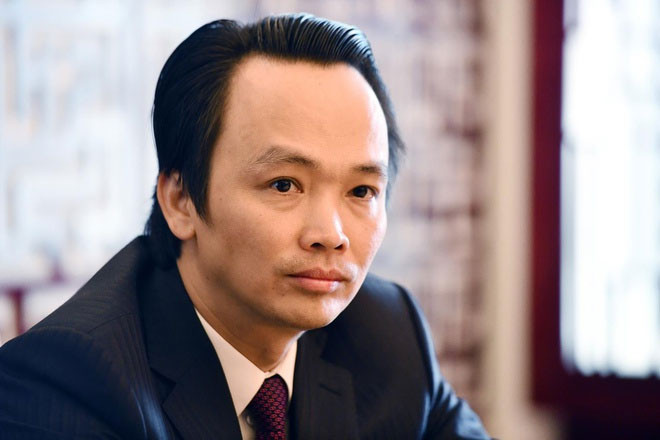
The rise…
Hanoi People’s Court has announced the trial of the former chair of FLC Group Trinh Van Quyet and other 49 defendants in the case of falsely increasing FLC Faros (ROS) from VND1.5 billion to VND4.3 trillion. The trial is scheduled to open on July 22 and last many days.
With the tricks played by Quyet, ROS prices soared from zero to hundreds of thousand of dong per share.
ROS, the shares of real estate developer FLC Faros, was the "most abnormal share" on the stock market, which helped Quyet become the richest billionaire overnight in late 2016 and early 2017 (counting the shares he was holding). Many investors ended up losing money.
When it entered the bourse on September 1, 2016, ROS shares immediately caught attention from investors. With the reference price of VND10,500 per share and the capitalization of VND4.5 trillion, ROS prices escalated.
In October 2016, investors began seeing the ROS trading value skyrocket with 50-70 million units of stocks transferred each trading session. ROS prices soared by 10 times, reaching VND100,000 per share only several months after it was officially listed at HOSE (HCM City Stock Exchange).
In mid-November 2016, Quyet surpassed Vingroup president Pham Nhat Vuong to become the richest stock billionaire, causing shocks and suspicion.
At that time, with the price of VND115,000 per share, Quyet’s total assets reached VND33 trillion ($1.47 billion), mostly thanks to the ownership of 290 million ROS. Meanwhile, Vuong had VND32.3 trillion ($1.44 billion) at the same time.
Quyet’s wife, Le Thi Ngoc Diep, also entered the list of top 10 richest billionaires.
On July 24, 2017, ROS was added to the VN30 basket (the 30 key shares in the stock market). It began seeing prices continually increasing.
The ‘madness’ of ROS reached its peak in the time from late September to early November 2017. Investors were surprised when seeing the share price of a less known construction company increase by 10 times, and then by another twofold to VND215,000 per share.
Just six months after its debut, ROS prices soared by 2,000 percent after continued increases during 35 trading sessions. Quyet’s assets once soared to VND50 trillion.
Later, Quyet was ousted from No1 position on the list of top billionaires because Vuong increased the amount of VIC shares he was holding.
Analysts noted that though Quyet’s asset value soared during a certain time, he was never recognized by Forbes and Bloomberg as a Vietnamese dollar billionaire.
… and fall
The dark days of ROS and Quyet began after ROS share price hit its peak in November 2017. The prices fell to VND100,000 per share in March 2018, and then to VND50,000 per share in mid-2018.
The prices dropped further to below VND10,000 per share in early 2010 and to VND2,000 per share in March 2020.
After that, ROS prices went sideways, hovering around VND1,000-5,000 per share until the share was delisted in September 2022.
The ballooning of charter capital and inflating of ROS share prices were uncovered after Quyet sold 75 million FLC shares in early 2022 without any notification.
After that, other violations made by Quyet in secret were also found, and the businesses belonging to the FLC ecosystem also began sinking.
To date, all 7 shares of the FLC family have been delisted to protect investors’ benefits, including FLC, ROS, HAI (agrochem manufacturer), AMD (FLC Stone Mining And Investment JSC), GAB (FLC Mining Investment & Asset Management JSC), BOS (BOS Securities, or ART) and CFS (CFS Investment And Import Export Trading JSC, or KLF).
FLC Group still had 64,100 shareholders after its 710 million shares were delisted on February 20, 2023. The number of shareholders at the businesses belonging to FLC ecosystem is also high.
As for ROS shares, they officially left HOSE in September 2022 but have not been accepted for transactions on UpCom. Trillions of dong worth of shareholders’ contributed capital still cannot be taken back.
Manh Ha